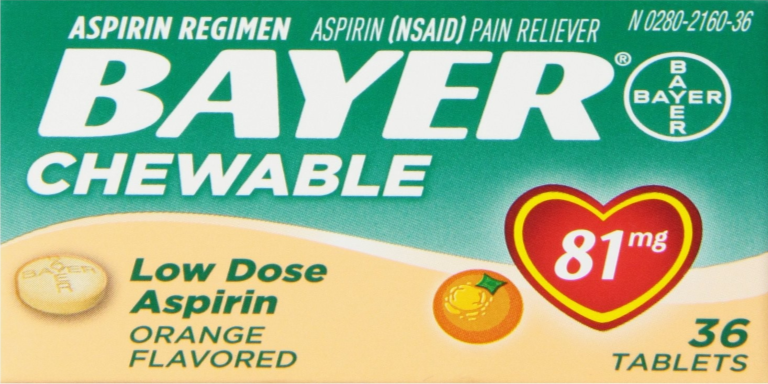Aspirin is the most commonly used medication in the world. It’s used daily by millions of people as a blood thinner to reduce the risk of a heart attack. Heart attacks usually occur when a blood clot develops in response to ruptured atherosclerotic plaque in a coronary artery. Taking aspirin may help prevent this from happening. Aspirin may also lower your risk of cancer by suppressing pro-inflammatory compounds called prostaglandins.
Sounds like we all should take a daily aspirin, right? No! The problem is that aspirin can cause dangerous side effects. The same blood-thinning benefit that can prevent a heart attack can also cause a hemorrhagic stroke in which you bleed into your brain. Aspirin can also damage digestive tract leading to a bleeding ulcer.
Wouldn’t it be great to get the benefits of aspirin without the detriments? Actually, you can! The active ingredient in aspirin is called acetylsalicylic acid and it is found in abundance in fruits and vegetables, and the more you eat, the higher your blood level of acetylsalicylic acid. In fact, people eating a whole-food, plant-based diet have blood levels of acetylsalicylic acid as high as those taking daily aspirin.
So, do plant-eaters have more strokes and ulcers because of their high acetylsalicylic levels? No! People that eat a whole-food, plant-based diet have lower rates of stroke and ulcers. How is that even possible? It is because plants also contain protective compounds that prevent side effects from acetylsalicylic acid. For example, naturally-occurring nitrates in vegetables increase the production of protective mucus in the lining of the stomach.
Acetylsalicylic acid is found in a wide variety of fruits and vegetables. Organic produce contains nearly 6 times more acetylsalicylic acid than pesticide-laden produce. Fruits such as apricots, blackberries, blueberries, cantaloupe, dates, guava, and raisins contain substantial amounts of acetylsalicylic acid. Granny Smith apples, avocados, cherries, red grapes, mandarin oranges, and tangelos also contain high amounts.
Vegetables high in acetylsalicylic acid include green peppers, olives, mushrooms, tomatoes, radishes, broccoli, cucumber, fava beans, spinach and sweet potato. Nuts such as almonds, peanuts, pine nuts, macadamias, and pistachios are also a rich source of acetylsalicylic acid. Spices are also a rich source of acetylsalicylic acid. Chili powder, paprika, and turmeric are rich in the compound, but cumin has the most. In fact, just one teaspoon of ground cumin, or two capsules (click here), has the same amount of acetylsalicylic acid as a baby aspirin (81 mg).
Comments: People who have had a heart attack should follow their physician’s advice to take aspirin every day. But what about the rest of us? I recommend that everyone take aspirin, not by taking a pill, but by eating a whole-food, plant-based diet which includes an abundance of organic fruits and vegetables.
